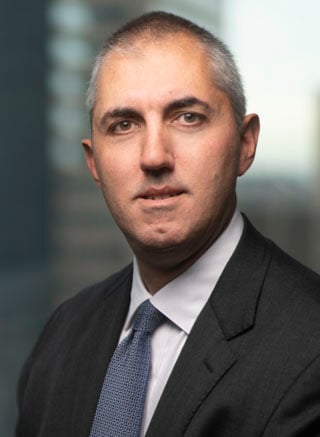The defense of involvement — as opposed to advice — of counsel
Reuters Legal News
In its traditional form, the advice of counsel defense can validate conduct that might otherwise be considered criminal. But invocation carries a steep cost: The defendant must waive his privilege with the lawyer who gave the advice in question. An additional prerequisite complicates utilization: The defendant must demonstrate good faith reliance on the advice he sought and received.
Meeting this prerequisite necessarily requires that the defendant identify the particular question he raised to counsel, as well as the specific instruction counsel provided in return. But what happens where the lawyer never actually provides advice, but instead simply never says “no”?
Two recent cases — one involving Sam Bankman-Fried, the other former President Donald Trump — address this question to some degree. Both cases denied the vast majority of the relief sought, but the rulings provide the framework for counsel to offer evidence regarding counsel’s presence or involvement in a manner that demonstrates that the defendant acted in good faith and without an intent to defraud. United States v. Bankman-Fried, Case No. 22-cr-0673 (S.D.N.Y). (Court memorandum opinion, Feb. 7, 2024). People of the State of New York v. Trump, Ind. No. 71543 / 2023. (Ruling of March 18, 2024).
A formal advice of counsel defense requires the defendant show that he: 1) made a complete and honest disclosure to his counsel concerning the matter at issue; 2) sought advice regarding the legality of his conduct; 3) received advice that the conduct was legal; and 4) relied on that advice in good faith. That framework necessarily requires that the defendant ask for and receive affirmative advice.
In some situations, however, those formalities do not exist. Instead, counsel may be simply present for and involved in certain activities or discussions. The attorneys aren’t formally asked to bless a particular course of action, and therefore, never formulate or deliver an affirmative statement deeming it legal. Rather, counsel may simply fail to oppose a particular strategy or otherwise voice concern about its undertaking.
In that scenario, clients may understandably conclude that counsel’s failure to speak up means that the planned action is legal. What is the purpose of counsel if not to alert a client that a contemplated strategy runs afoul of the law? Shouldn’t a client, aware of his lawyer’s involvement in formulating an approach, be permitted to rely on counsel’s failure to say “no”?
The Bankman-Fried case contains the key analysis, which the Trump court adopted in full. In Bankman-Fried, the court required early on that the defendant declare his intention “to present an advice of counsel defense” pretrial, and he did so. It quickly became clear, however that the defendant did not plan to assert the defense in its traditional form, but rather to argue that his awareness that outside and in-house counsel were “involved in” certain decisions was “directly relevant to his good faith and lack of criminal intent, even if not introduced as part of a formal advice of counsel defense.”
The court’s pretrial ruling initially disputed the characterization of advice of counsel as a defense, suggesting instead that the relevant question concerned whether the presence, involvement and advice of lawyers mitigated the defendant’s intent to defraud.
After reviewing case law seemingly supporting both inclusion and exclusion of the evidence, the court’s pretrial ruling noted a “palpable” risk of confusion and unfair prejudice to the government were the defendant to focus on the attorneys’ “presence or involvement” without further details. At the same time, however, the court recognized that such evidence “might have a real bearing on whether he acted with or without fraudulent intent.”
At trial, the court continued its relevance-based evaluation of the four different topics on which Bankman-Fried sought to offer the evidence. The court barred testimony on all but one topic, finding that only it “would not pose a substantial risk of confusion or unfair prejudice.” The court explained the nature of that potential confusion: that such evidence might suggest to the jury that “because lawyers were involved to some degree with one aspect of events, the defendant was entitled to conclude that he was acting within the law with respect to some other aspect of events.”
The court also denied the request to admit similar evidence on another topic because Bankman-Fried “could not recall discussing with counsel” the issue and therefore “could not have taken comfort in conversations he never had.”
The Trump court echoed these concerns, rejecting in full the defendant’s attempt to rely on counsel’s silent presence. Despite recognizing that such a defense might exist in theory, the Trump court nevertheless deemed the gambit an attempt to invoke an advice of counsel defense “without the concomitant obligations that come with it.” The court minimized the Bankman-Fried court’s holding as a mere restatement of “that which is well known.”
The Bankman-Fried and Trump holdings deeming inadmissible involvement/presence evidence, despite acknowledging on some level its “well known” potential relevance creates more questions than answers. While the rulings raise concerns and create some uncertainty, however, they also offer at least a glimmer of hope.
The exclusion of the proffered evidence on the grounds that jurors might be confused appears to overlook the fact that any potential risk of juror misperception could be addressed by a simple limiting instruction. Moreover, a focused cross examination would presumably clarify the scope of the defendant’s reliance on counsel’s involvement, and the degree to which such claimed reliance might lack factual or logical basis. Highlighting these points, and even proposing a firmly worded limiting instruction making clear the legitimate purposes for which the jury may consider the evidence, may nullify a future court’s concerns on the issue.
The Bankman-Fried ruling also creates doubt regarding offering a lawyer’s silence as evidence of good faith reliance. By finding that Bankman-Fried’s lack of conversations with counsel on certain topics effectively precluded his good faith reliance on counsel’s failure to counsel against the planned course of action, the court suggests that affirmative advice must be sought and received.
But that rationale clashes with the court’s prior determination that “involvement” or even “presence” of counsel might be sufficient, without the need to specify particularly discussions or conversations with counsel about the topic. Counsel seeking to offer such evidence going forward should consider highlighting this inconsistency.
Ultimately, these decisions offer a roadmap for effective use of the “involvement of counsel” defense. Where a defendant can provide specifics regarding counsel’s presence or involvement in certain events and identify clearly an attorney’s assigned tasks and scope of knowledge, he may be able to show that his knowledge regarding what he understood the lawyers knew and were doing counters intent evidence offered by the prosecution. Introducing such evidence, however, would likely require the defendant to testify, and may entitle the government to cross examine regarding the scope and reasonableness of the defendant’s claimed reliance.
As demonstrated by Trump, courts will not permit “involvement of counsel” to be used simply to evade meeting the prerequisites of “advice of counsel” lest the jury be misled. But where the circumstances demonstrate good faith reliance on counsel’s: (1) full awareness of a planned strategy and (2) purposeful failure to say “no,” admission of such evidence under a regimented framework arguably strikes the proper balance.
Republished with permission. The article "The defense of involvement — as opposed to advice — of counsel" was originally published by Reuters on March 26, 2024.


